|
Sex is a topic that isn't frequently discussed in connection to Autism Spectrum Disorders. There are a few books and several websites, but in general, sex is often an issue that gets overlooked. In the book Asperger’s From the Inside Out, author Michael John Carley discusses how issues around sex can be difficult for many adults with Asperger’s. Sensory issues, inadequate sex education, and difficulties with social skills can all contribute to problems in establishing and maintaining a healthy adult sex life. Therefore, I thought this topic would be a good place to turn to an expert.
In this repost of an earlier entry, I’m conversing with Isadora Alman, a Board certified sexologist and a California licensed psychotherapist and counselor. She’s the author of "Ask Isadora," a syndicated advice column on sex and relationships, which appears in newsweeklies nationwide, as well as the Sexuality Forum website. Patricia Robinson: For starters, can you please explain exactly what a Board certified sexologist is, and how they work with clients? Isadora Alman: As you know, the state of California licenses people helpers of several sorts: psychologists, social workers, and marriage and family therapists. All have their areas of expertise in people helping. There is no licensing for those who make sexuality their specialty so there are several professional organizations such as the American Association of Sex Educators, Counselors and Therapists and The American Board of Sexology who review the professional experience and expertise of those who do specialize and give them certification. A sex therapist or a sexologist (one who studies sexuality) will be knowledgeable in relationships and in sexuality because one generally takes place within the context of the other. I might work with clients who have little or no sexual knowledge or experience, making referrals and offering resources to gain know-how and confidence. If a client's sexual expression is not as satisfying as it might be, I will work with him or her in making suggestions to improve knowledge and skill. And, since communication is a very important part of finding a partner and enjoying sexual expression, I will also help with that. Patricia Robinson: I think lack of sexual experience and lack of confidence can be common issues for adults on the autism spectrum, maybe those who didn't get to experience dating and relationships when they were younger. How would you help a client who feels less experienced than peers? Isadora Alman: For social skills I don't think there's anything better than a mixed (men and women) support or therapy group. There's is almost always one nearby anywhere in the Bay Area. There one can get information, support and feedback from others without going on an actual "date" until s/he is ready. In matters of sexuality I strongly recommend educational explicit films put out by folks like the Sinclair Institute that show and teach all manner of sexual expression. I recommend a massage course to learn how to touch and be touched. I recommend weekend workshops such as the Human Awareness Institute's "Love, Sex & Intimacy". If a client would like, I can also make a referral to a sexual surrogate partner of either sex to learn hands on skills. Patricia Robinson: There is so much information on sex on the Internet, and there are many different types of people to work with. (Therapists, medical doctors, sexologists, surrogate partners.) How can my readers be sure that they're getting good, educational and ethical information and help, and not just wandering into a misleading or exploitive situation? Isadora Alman: The Internet is full of misinformation, it's true. Anyone can post anything. Unfortunately, there also exist people with degrees who may act unethically or have their own agendas, but usually membership in an accredited institution such as the American Medical Association or the American Association of Sex Educators, Counselors and Therapists is a fairly reliable endorsement. The very best endorsement is a referral from someone you know and trust who has used that person's services before. Ask around. Ask other professionals you trust to recommend someone. Sometimes the same name comes up as a resource from several sources. That's a good indication that this person is respected in his or her field. Patricia Robinson: Isadora, thanks so much for talking to me on this topic. I’m sure this is an article that will be useful to many of my readers. This is a repost of a popular post that wasn't opening correctly. Rather than spend a lot of time troubleshooting, I'm just moving the post. I remember learning in grad school that the very things that attract a couple to each other in the beginning are the things that draw them apart later on. Perhaps nowhere is this more true than the marriages between neurotypicals and those with Asperger’s. In my last post I discussed Gina Pera's Is It You, Me, or Adult ADD, the classic text on marriage to a partner who has ADHD. In my upcoming posts, I’m going to discuss two other books, Loving Someone With Asperger’s Syndrome , by Cindy N. Ariel, Ph.D. and The Journal of Best Practices , by David Finch. Both of these books cover the topic of marriage between a neurotypical and an individual with Asperger’s or an autism spectrum disorder. The Asperger’s/neurotypical marriage is probably even more challenging than an ADHD/neurotypical marriage. In both cases, the couple is coping with differences in their basic ways of dealing with the world, and differences in neurobiology. However, Asperger’s also, by definition, involves social differences, and marriage is, at its core, our most social relationship.
There’s been a lot of controversy in the autism community about the tendency to scapegoat the Asperger’s partner for all of the relationship difficulties. Maxine Aston put forth her theory, not backed up in the peer reviewed literature, which she calls Affective Deprivation Disorder, where the neurotypical partner suffers due to emotional deprivation. Although, of course there is truth to the idea that the partner may be suffering, the autistic blogging community understandably had a lot of criticism about the idea of the syndrome. Certainly, in troubled couples, both the neurotypical partner and the ASD partner are suffering. I think a healthier option toward helping these couples might be to step away from blame and expecting one partner to do all the adapting, and instead focus on improving understanding and communication between both partners. After all, neurotypical partners choose their ASD spouses deliberately, often due to the very strengths that come with the ASD diagnosis. The two books I’m next reviewing both can help couples move toward that direction, but in very different ways. (Note, check out my earlier posts for Loving Someone with Asperger's and The Journal of Best Practices.) The Journal of Best Practices: A Memoir of Marriage, Asperger Syndrome, and One Man's Quest to Be a Better Husband The Journal of Best Practices, A Memoir of Marriage, Asperger Syndrome, and One Man’s Quest to Be a Better Husband, by David Finch, is an entertaining and enlightening book. The author, upon realizing that his five year old marriage is in serious trouble, and learning that he has Asperger’s Syndrome, decides to methodically improve his marriage and be a better father as well. Finch starts out his quest by attempting to fix his autism, then realizes that the issue is in improving the marriage itself. Finch takes on this task in a detailed and methodical way, attempting to figure out the rules of the big picture by painstakingly noting the patterns around all the details. He comes up with a list of changes he can make, not really changes in himself, because it is clear that his wife already loves him, but more changes in how he treats his family.
I enjoyed the humor in the book, as well as Fitch’s unswerving honesty in looking at himself. He repeatedly moves from cluelessness, where he isn't meaning any harm, although he might be causing a great deal of it, to understanding. I think this is a key insight for neurotypical partners to come to, and a good reason for them to read this book. With a disorder that makes it difficult to impossible to understand one’s partner’s feelings, the inevitable misunderstandings are not deliberate. It can be a lot easier for a spouse to forgive an unintended harm. Because Finch really struggles to understand his wife's point of view, she remains quite a mystery to the reader as well. I found myself searching online after I finished the book to try to get a feel for her voice. At the same time, my experience of not knowing her is a useful sample in helping us neurotypicals understand for a moment what Finch experiences with his wife. Tthis book can also be useful for individuals on the spectrum. The idea of being a caring partner can be quite an abstract goal. In my practice, I always try to move from the abstract to the concrete, and examples are a great way to do so. The examples in this book take the abstract ideas about being a good husband and father and bring them to life in a more concrete and useful fashion. Marriage always involves compromise and adjusting for differences, and that’s even more true when one partner has a diagnosis, like autism, Asperger’s, or ADHD. In my therapy practice I work with many of these mixed couples, where it’s not just two different personalities, but also two different ways of experiencing and dealing with the world. These differences can bring a refreshing sense of novelty, perspective, and balance to a relationship, but they can also result in conflict, disappointment, and disconnect. Fortunately, understanding those differences between partners can be the first step in bringing a troubled relationship into one that’s supportive and satisfying for both. Gina’s Pera’s Is It You, Me, or Adult ADD? was written as a support group in book form, focused on the partners of adults with ADD or ADHD, and Pera uses the voices and examples of support group members throughout. But, don’t be fooled by the support group theme. This book is an extensive and well researched resource, covering not just anecdotal examples but also thoroughly detailing treatment options, historical background and professional discussions of ADHD. I always appreciate writing that’s easy to read while still being informative and professionally referenced. This book will serve as a useful long term reference as well as a book to read through.
I read some reviews criticizing Is It You, Me, or Adult ADD? for siding with the non-ADHD partner and blaming all the marital problems on ADHD and the ADHD partner. Although I think this can be a fair criticism in general, the book really isn’t directed at those couples where ADHD is bringing creativity and spontaneity to the marriage. People attend support groups because they need support with problems and they pick up a book like this because there’s something wrong in their relationship. It’s reasonable to address the problems the diagnosis brings in these cases. Is It You, Me, or Adult ADD? is an excellent resource for couples dealing with ADHD and I recommend it highly. I think every family wants what's best for their autistic child, and one of their biggest worries is divorce. It's not surprising, since popular culture so often states that 80% of families with autistic children get divorced. Thankfully, that statistic seems to be more widespread than valid. I’ve published a few posts on the theme of divorce statistics among families with autistic children. You can find more details about divorce rates in the Kennedy Krieger studyand the Easter Seals survey.
Fortunately, it’s an intriguing issue, and researchers continue to investigate the question. Recently, The Journal of Family Psychology published a study by Sigan Hartley, in which she looked at 406 families of autistic children, as well as an equal number of parents of typical children. The study found that divorce rates were equal up to the child's age of eight, after which time the parents of autistic children were more likely to divorce. The study found a 23% divorce rate for the autistic families, compared to 14% for the typical families, still a far cry from the often reported 80% rate. Hartley suggests that the difference in rate found between this study and the Kennedy Krieger study was due to the age differences of the children. The Kennedy Kreiger study, which found equal divorces rates regardless of the presence of autistic children, looked at children under 17, while Hartley’s study included children into middle age. Clearly, this is not a simple question, and more research will give us more details. But, the good news is that most families do manage to stay intact, regardless of their children's diagnoses. I’ve long been a fan of Zosia Zaks, author of Life and Love: Positive Strategies for Autistic Adults as well as numerous articles on autism related topics. Zax’s organization, Zax Autism Consulting, is sponsoring a sexuality workshop for adults on the autism spectrum. Unfortunately it’s not local to the Bay Area where I work, but for those readers in Baltimore, MD, please consider attending. The presentation is in two parts, on the evenings of December 11, 2010 and January 15, 2011. For more information, contact Susan Howarth at (443) 676-5366 or successtransitions@comcast.net.
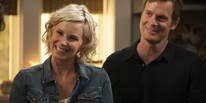 I'm never quite up to date on TV viewing, since I watch everything off my DVR, so I'm commenting about a show from a few weeks ago. Parenthood, Season 2, Episode 4, which features a family dealing with a child's Asperger's, talked about the dreaded divorce statistic "80% of families with an autistic kid get divorced." Fortunately, that's just not true. The 80% statistic is an enduring myth I see quoted frequently, but studies just don't back it up. The divorce rate seems to be about the same, whether a child is autistic or not. Even worse, the show quoted that the character's therapist told her that it was true. Lesson 1: Don't believe everything your therapist tells you! Lesson 2: Just because your child is autistic, doesn't mean you're doomed to divorce. You can read an earlier discussion of this topic on my Divorce and Autismpost. Please don't skip the show because of one bad statistic. Autistic kids are varied, and every family is different, but in general, Parenthood seems to do a pretty good job of presenting the joys and struggles of raising an autistic child. Many teens and young people are dealing with issues involving their sexuality, as well as Asperger’s or other Autism Spectrum Disorders. High school and middle school can be hard for everyone, but for those who feel like they don’t fit in, it’s especially tough. School bullying is rampant, and often the targets are just those kids who are different, such as the kids on the autism spectrum, or lesbian, gay, bisexual, transgender, or questioning (LGBTQ) kids, and maybe most of all, the kids who are dealing with ASDs as well as LGBTQ issues.
Sadly, there have been a number of tragic deaths recently of LGBTQ young people who’ve been harassed by classmates. There are so many resources available to anyone who’s being bullied, or feeling picked on, or different, or thinking that that life won’t get better. One excellent resource is The Trevor Project, which the site describes as “The Trevor Project is the leading national organization focused on crisis and suicide prevention efforts among lesbian, gay, bisexual, transgender and questioning (LGBTQ) youth. If you or a friend are feeling lost or alone, call The Trevor Helpline (866.4.U.TREVOR), 24 hours a day, seven days a week.” Related to the Trevor Project, is the It Gets Better page on You Tube. Both celebrities and ordinary people have submitted videos of their own experiences in dealing with school, bullying, and especially bullying about sexuality. Project Runway’s Tim Gunn, Glee’s Chris Colfer (Kurt), Neil Patrick Harris, Perez Hilton, and others have recorded messages. Please don’t think that you should struggle on your own with issues regarding sexuality, whether you’re on the autism spectrum or not. And none of these issues mean that you can’t go on to have a successful, happy life. If you’re feeling isolated and different, please use these resources to find support. Frequently, kids on the autism spectrum attend social skills classes. There, kids are taught the basics of getting along with others, things like making good eye contact, respecting others' personal space, the rules of give and take in conversation. Usually, after a few months or sometimes a couple of years of these sessions, the members move on to other activities and social skills training formally ends. (When I talk with adults with ASDs, they often complain bitterly about how much they hated these classes and how they didn’t learn what they needed from them.) But we all, kid or adult, need good social skills to get along with others, and everyone needs to have supportive relationships. That requires a lot more than the basics taught in children’s social skills classes. So how can adults on the spectrum improve their social skills? Sometimes, adults are lucky enough to find a support group where they can interact with others who might be willing to practice some skills, give honest feedback, or even just be patient with those whose social skills might be a bit off. If you’re lucky enough to live near one of these groups they can be a great source of both support and a learning environment. Other adults find a partner or close family member who can help with interpreting the more precise situations. For many adults on the spectrum, a parent, sibling, or partner really functions as a social skills coach. (For an example of this, read Mozart and the Whale, reviewed in a previous post, where a married couple, both with Asperger’s, demonstrate how they use their relationship to improve their skills. Each learns to pay attention to the other’s signals, manage their tempers and respect each other’s boundaries throughout the course of their relationship.) For people without the advantages of close relationships, there are still ways to learn these skills. One option is to hire a coach or therapist. These professional relationships are specifically designed to provide that detailed feedback in a safe setting. It can be very different from interacting in a give and take two way friendship. But not everyone is comfortable about working with a professional, and that’s where books can help. Michael Yapko’s Depression Is Contagious: How the Most Common Mood Disorder Is Spreading Around the World and How to Stop It is all about how social relationships are crucial in preventing depression. Yapko argues that our modern culture is failing us with its emphasis on instant gratification, personal fulfillment, technology and acquisition, all at the expense of good relationships with others. Throughout the book, Yapko presents the skills he finds most important in establishing and maintaining good relationships, things like setting good personal boundaries, analyzing character before starting relationships, and how to manage conflict. The book has little self help exercises throughout, called “Learn by Doing” and “Pause and Reflect” where the reader can actually work on these skills individually. Although it’s not referred to as such, this book is really the closest thing I’ve read that could be considered a “Social Skills Book for Adults”. If you’re looking for a way to improve your relationships, get along better with others, and manage both personal and professional interactions, check out a copy of Depression Is Contagious.
A lot of people, usually women, call me because they suspect or wonder if their partner or spouse might have Asperger’s or autism. They might be looking for a way to understand, a solution to a specific problem, or a way to “fix” their partner. (If you’re wondering, no I can’t fix your partner, that would be like trying to fix my left-handedness. Asperger’s is a neurological and behavioral difference, not something to be fixed - which doesn’t mean that all couples can’t learn to communicate and relate to each other in a healthier way.)
There are many reasons a person would choose to be involved in a romantic relationship with an individual on the autism spectrum. Often the autistic partner is more reliable, honest and steady, there’s usually a relief since there’s so much less game playing. A lot of men with Asperger’s seem to really see the woman for who she is, not being drawn in to the cultural limitations that women must fit a certain mold. And of course, the intellectual depth can be very appealing. At the same time, autism and Asperger’s really do involve a different way of seeing the world and dealing with it, especially socially, in the context of relationships. This fact can mean real difficulties within marriages. All marriage counselors quickly see that the very things that draw a couple together in the first place are the same things that really bother them later on. The strength of Asperger’s that draw a couple together can also pull them apart. For those neurotypical spouses and partners looking for support, GRASP has an new online group. GRASP, The Global and Regional Asperger Syndrome Partnership, has a number of local support groups, primarily on the East Coast, as well as online support groups for various Asperger’s related issues. One of the great strengths of GRASP is its strong support of adults on the spectrum, as well as the focus on having autistic individuals running the organization. If you’re a neurotypical partner of an individual on the spectrum, why don’t you check out this new group? |
Patricia Robinson MFT
I'm a licensed therapist in Danville, California and a coach for Asperger's and ADHD nationwide. I work with individuals of all ages who have special needs, like Autism Spectrum Disorders, ADD, ADHD, and the family members and partners of special needs individuals. Archives
February 2015
Categories
All
|
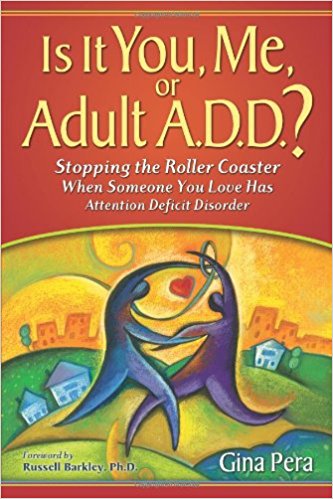
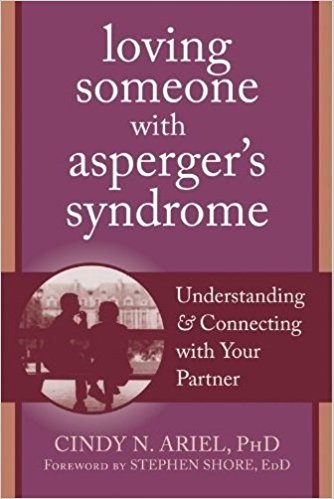
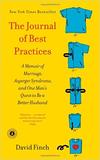
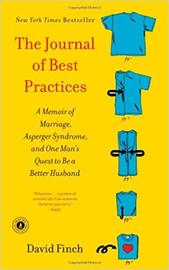
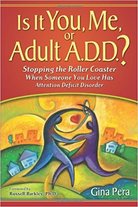

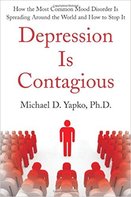
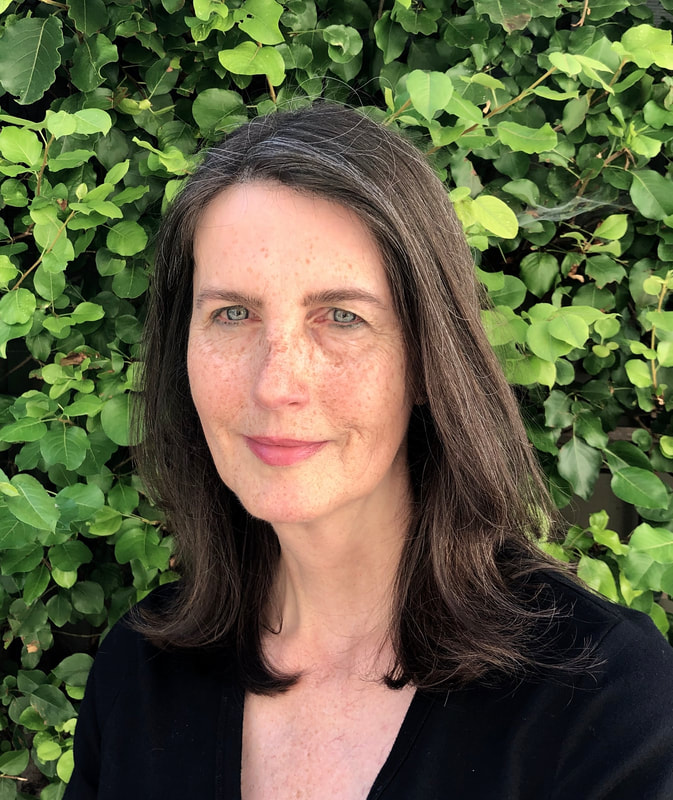
 RSS Feed
RSS Feed